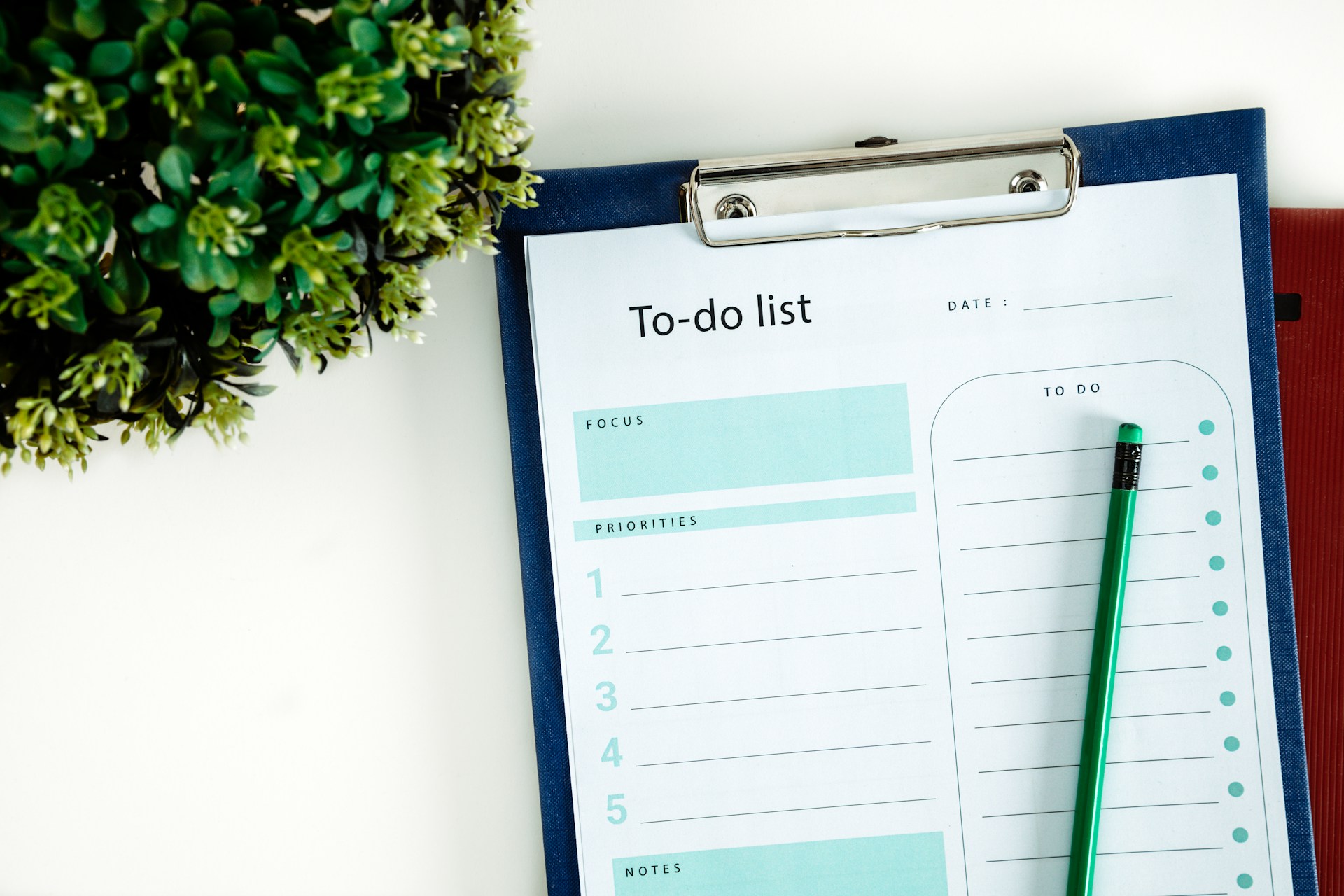Many individuals reach a point that causes them to become serious about making changes to their weight. They often will get off to a good start, but then real life kicks in and they find themselves too busy and stressed to stick to their diet or exercise. Anyone who has ever tried to shed a few pounds is aware of the difficulties associated with any type of weight management.
Losing weight does not happen quickly; it requires time and commitment, as well as an increase in physical activity and altered eating habits. It certainly is not something you can do ad hoc and without a strategy, because things will soon seem too daunting and you will find yourself off track quickly.
Inadequate mental and physical preparation are two of the most prevalent causes of weight-loss program failure. Today we are going to talk about some strategies that will help prepare your mind and body so you can reach your goal weight. These should work for you, whether you are looking for strategies on how to prepare for a weight loss procedure or are preparing for weight loss surgery.
{{cta_button}}
How To Mentally Prepare For Weight Loss
You've resolved to go to the gym daily and fix your diet, but have you also prepared yourself mentally? The importance of mentally preparing oneself to lose weight is often underestimated. Just telling yourself you'll lose weight isn't enough; you also need to change your perspective on eating and exercise so that they become integral parts of your identity. It involves adjusting your habits in such a way that eating well and being active become automatic, rather than requiring extra effort.
1. Modify your perspective
In the international best-selling book "The Power of Positive Thinking", Dr. Norman Vincent Peale states,
"Believe in yourself! Have faith in your abilities! Without a humble but reasonable confidence in your own powers, you cannot be successful or happy".
While trying to lose weight, a pessimistic outlook might be one of your most formidable obstacles. When you tell yourself you can't accomplish anything, you're more likely to avoid trying and sabotage yourself. You will never be successful at losing weight if you have a false belief that following your program is not going to work and that you don’t have what it takes to succeed.
Think and say encouraging things to yourself every day, several times a day as needed, until they become part of who you are. Write some on sticky notes and put them in prominent places. Here are a few to get you started:
My strength increases daily;
- A new day brings a new opportunity to further my weight loss efforts;
- I am strong and tenacious, and I can do everything I set my mind to;
- I can successfully shed these pounds;
- I am on the path to perfection;
- I have made it a priority to take care of myself;
- If I stick to my plan, I know I can successfully lose weight;
- I know I can succeed at my weight loss goal;
- This is something I'm doing because I care about and value myself;
- I feel great when I eat healthily and get some physical activity;
- I am thrilled to be beginning a healthy lifestyle;
- By consuming whole foods as opposed to processed meals, I will become healthier and lose weight.
- Create a visual representation of why you want to lose weight
Create a collage or picture board that helps keep you motivated. The purpose of a motivational board is to aid in the constant visual reinforcement of one's intended outcomes.
If you put up meaningful pictures and messages on a physical bulletin board or poster board, it could be a source of motivation. Visual inspiration is a powerful tool that can keep you going when your journey becomes especially challenging. It can help you stay focused on your objectives and motivate you to take action so you don’t get off track.
2. Journal Your Progress
Keep track of your weight loss journey, including progress, setbacks, and other important data, by keeping a diary. Keeping a journal of your thoughts, feelings, and accomplishments can allow you to reflect on your development over time. Looking back at how far you have come can provide inspiration for moving forward. Knowing what you can accomplish if you stick to your strategy can help you realize just how strong you really are.
{{cta_button}}
3. Understand the relationship between your emotions and your choices
When feeling apprehensive or upset, many people tend to revert back to their old habits. There are times when it is tempting to overeat or forego exercise since doing so temporarily may make us feel better. The problem is that it only works for a few minutes, and these choices will make it more difficult for us to achieve our objectives.
Instead of allowing your emotions to control you, consider how you might replace them with good emotions, such as confidence and self-worth so that they inspire you instead of preventing you from accomplishing your important goal of losing weight!
4. Do Not Set Unrealistic Goals
Setting goals that even Iron Man and Wonder Woman could not accomplish will just set you up for failure and disappointment. If you set a goal to lose 20 pounds in 10 days, you will most likely become frustrated and probably ill because your goal was unrealistic and not too safe. Set smaller goals that will be steps toward the larger objective. This gives you the satisfaction of achieving them and checking them off the list without sacrificing your sanity or health.
5. Give Yourself Grace
Be patient, and do not think that your changes are going to yield immediate results. It will take you and your body time to adjust to the lifestyle changes you are making. Do not beat yourself up if you mess up but by the same token don’t use your mess up to write off the entire day. (i.e., well, I should not have eaten that cake, but I blew it, so I guess a plate of french fries and three cokes won’t matter today.) Stay on track; go back to your affirmations and say them out loud so you can hear yourself. Remain strong; you've got this!
6. Become Aware of Your Stress Level
Everyone has stress, but not everyone thinks about it or understands what damage it can do to our body's ability to function properly. It takes a toll on our metabolic functions and can cause us to eat too much and gain weight, as well as impede our efforts to lose weight. Some people find that yoga or certain types of exercise help them deal with stress. Spending time doing things you enjoy (hobbies or activities) may also help. Make time to do some of the things that you like to do, as long as they do not contradict your program for better health. You may wish to consult with a professional for assistance with stress management.
7. Improve Your Knowledge Base
Learn all you can about the importance of nutrition and exercise. There is a wealth of accessible information that can help give you reasons and justification to make the right decisions. Understanding how your body works and what to expect while making these changes can help you be prepared with strategies to overcome the obstacles that will arise along your journey. The old saying "knowledge is power" is true; when you have accurate information, you are armed for a battle you can win.
8. Find and Utilize a Support System
Everyone needs support during difficult times, particularly when losing weight! Support comes from a person who actually knows your circumstances can have a major impact on keeping you inspired to move forward in meeting your objectives. At Batash Endoscopic Weight Loss Centers, you are given the utmost support and also helped with accountability by a compassionate, knowledgeable weight loss team throughout your entire weight loss journey. You are given access to both in-person and online resources to help you plug into a group of like-minded individuals who can offer both encouragement and practical strategies for success.
{{cta_small}}
How To Prepare For A Weight Loss Procedure Physically
Beginning a safe and successful weight loss journey begins with adequate preparation of both mind and body. It is always a good idea to speak with your doctor before starting any sort of new routine, just to make sure there are no medical conditions that need to be monitored along the way.
1. Consider Professional Weight Loss Help
Whether you have never tried dieting before or have tried and failed, speaking to a professionally trained obesity doctor can help you safely and effectively reach your weight loss goals. A qualified doctor can create a sustainable weight loss plan that works for your lifestyle, circumstances, and goals. An expert like Dr. Steven Batash can help identify any underlying issues that may have prevented you from losing weight in the past and can also offer you a non-surgical weight loss tool or prescription medication that can make your program a bit easier.
You will also have access to a team of professionals who will help you with critical elements such as dietary guidance, exercise help, education on nutrition and vitamins, etc. that will aid in your weight loss success.
2. Create A Plan
It is important to have a plan in place before beginning a diet and exercise program, so you can prepare your body for any upcoming adjustments. If you try to adopt a new lifestyle without preparation, you may encounter some unexpected issues that will impact your weight loss progress.
If you enlist the help of a professional, it will take all the guesswork out of what to include in your plan. You will also have access to multiple levels of support that can help you revise your plan to accommodate the issues that do arise.
Here are some of the elements that should be included in a safe plan for sustainable weight loss.
3. Make Dietary Changes Gradually
The changes that you will need to make to your diet are the ones that make the biggest impact on your weight loss success. The challenge is making these changes long-term, as in forever. If you have gotten by for several years eating microwave meals, this part of your weight loss journey may be your biggest challenge.
As you learn about nutrition and the types of food you need to eat to become healthy and maintain your goal weight, you will understand why pre-packaged and processed foods need to be eliminated from your diet. Eating healthy requires some preparation and cooking, so you should create a plan to gradually move yourself from your current habits to those that will help you lose weight and maintain that weight loss.
If you grab a package of cookies and a coke every day from the vending machine at work during break, pack yourself a healthy snack such as some apple slices and cheese or a protein shake. Making changes to your diet gradually instead of trying to do them all at once will help keep you from getting overwhelmed, discouraged, and giving up.
Do not replace the food in the fridge or pantry with the same unhealthy choices as you go along; remove their temptation entirely. Pace yourself and remember this is not a sprint; it is a marathon, and as long as you are moving in the right direction, you are making progress.
4. Make a daily menu of meals and snacks
If you pre-plan what you intend to eat, it will help you grocery shop, and you will have healthy snack options on hand. It may be helpful to have a shelf in the fridge where you put your meals and snacks for the day so they are easy to access. If you prepare your meals in containers in advance, they are already preportioned and ready to heat up. This helps ensure you are not as tempted to seek other options due to time constraints or other reasons.
5. Eat Deliberately
Taking time to eat and chewing your food thoroughly helps you know when you are full, so you do not overeat. It also helps you concentrate on what you are eating and how much you are eating. It will prevent you from becoming distracted and gobbling down more food than you mean to or not even remembering that you ate. Experts say to take a bite, set your fork down, and fully chew your food slowly before taking another bite.

6. Use The Scale Sparingly
Watching your weight loss progress can be exciting, but it can also create anxiety and discouragement, especially if you do not understand the entire weight loss process.
The numbers on the scale will fluctuate greatly during your weight loss journey for many different reasons. For instance, initial weight loss is often water weight, which can create fluctuations, and as you replace fat with muscle, you may actually see an increase in weight because muscle is heavier. It is more important to pay attention to how you are feeling, how your clothes fit, and if any of your weight-related illnesses, such as hypertension or type 2 diabetes, have improved.
If you are the type of person who will stress if the numbers on the scale are not what you expect, then put it away and do not look at it every day. Weighing in at home or at the doctor's office once a month should be sufficient.
7. Find Ways To Exercise That You Like
When some people think of exercise, they may instantly visualize their dreaded gym class of endless squats and lunges. While those are beneficial, they are not required; there are many physical activities that count as exercise, so find one you enjoy.
Aside from walking, going to the gym, swimming, and doing housework, here are a few non-traditional ideas that burn calories.
- Have a hoola-hoop contest with your kids;
- Go bowling;
- Play frisbee;
- Have a family badminton tournament;
- Play fitness video games like Just Dance or Wii Sports;
- Plant a garden.
8. Go To Bed At A Decent Hour
Getting enough sleep is very underrated for how important it is. When you get enough sleep, it helps reduce your stress level, benefits your immune system, helps promote healthy blood pressure levels, and has been associated with both mental and physical health. Research has shown that not getting enough sleep can impact anxiety levels and promote depression. It can also increase our cravings for unhealthy foods, which ultimately makes us feel more hungry.
Adequate sleep levels also play a role in how well the digestive system and metabolic functions perform, which can impede or promote weight loss. The ideal amount of sleep for an adult is between 7 and 9 hours each night.
9. H2O Is the Way to Go
Water is a critical element that we cannot survive without, and despite the abundant supply we have in the United States, most people do not drink enough of it. Water makes up about 90% of your blood supply, which is critical to your health. It helps keep your blood pressure regulated as well as your body temperature, it keeps your joints conditioned, and it helps you maintain your energy levels, but it also helps with weight loss. It can help reduce the cravings for unhealthy food, boost your metabolism, and make the physical activity you get more productive.
10. Find a Partner
It is always easier and more enjoyable to do something with a friend or loved one. Finding someone who would like to join you on your weight loss journey can have many benefits. You can partner up and help each other with meal planning and shopping. You can go on walks together, hit the gym, join an aerobics class, play tennis, etc. Having a weight loss partner can help keep you on track, and you can help motivate each other when one of you is having a moment of weakness. Even when working with a professional weight loss doctor, having someone you know go on the journey with you can make your experience even more rewarding.
Choose Batash Endoscopic Weight Loss Center
Losing weight and maintaining a healthy BMI come down to making many modifications to our lifestyle and behavior. Every day we make choices that either promote or hinder our health.
Working with the professionals at Batash Endoscopic Weight Loss Center will provide you with the knowledge and strategies to successfully lose weight and keep it off.
As part of your weight loss program, you will have access to our comprehensive OnTrack lifestyle coaching. This will provide you with a dietary specialist who can help you create menus for weekly meal preparation for weight loss as well as give you advice on how to exercise and suggest vitamins and minerals to take in addition to your regular diet.
They will instruct you on how to prepare for a weight loss procedure and will be there every step of the way to support you in reaching your weight loss goal and beyond. The caring professionals at Batash Medical have your best interest in mind and want to help you gain an enhanced quality of life.
Call or contact us online today to set up an appointment to learn more about how we can help you mentally prepare for weight loss and physically attain your goals.
{{cta_button}}








